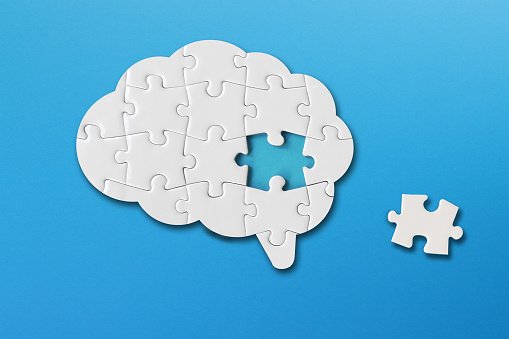Introduction.
Memory and concentration—two of the most important mental skills we use every day.
From remembering where we put our keys to staying focused during work meetings, both of these abilities can have a huge impact on how we live our lives.
The good news? They’re not set in stone. With the right strategies, it’s possible to sharpen your memory and boost your focus.
Whether you’re a student trying to cram for exams or someone struggling to keep up at work, improving your memory and concentration is within your reach.
I’ve put together this guide to help you understand how memory and concentration work, why they sometimes fail us, and—most importantly—what you can do to improve them.
By the end, I hope you’ll feel like you have a toolbox full of practical techniques to use in everyday life.
What Is Memory and Concentration?
Before jumping into solutions, it’s good to know what we’re dealing with.
Memory is the ability to store and recall information, while concentration refers to the ability to focus your attention on a single task, blocking out distractions.
They work hand in hand. If your memory isn’t sharp, it becomes harder to recall details or follow through on tasks. On the other hand, if you can’t concentrate, your mind will wander, and you’ll forget things more easily.
Both are vital for success in every area of life. So, what happens when either (or both) start to fade?
What Affects Memory and Concentration?
There are a lot of things that can get in the way of good memory and focus.
Lack of Sleep: This is probably one of the biggest culprits. Our brains need sleep to process and store memories. Without enough rest, our concentration and memory can suffer dramatically. According to studies, adults need between 7 and 9 hours of sleep each night for optimal brain function. If you’re not getting that, you’re likely to notice problems with focus and recall.
Stress and Anxiety: Ever tried to concentrate on something while you’re stressing out? It’s nearly impossible. High stress levels release hormones that impair your memory and ability to focus.
Poor Nutrition: Just like your body needs fuel to run, your brain needs proper nutrients to work well. Diets high in sugar and processed foods can lead to brain fog, while foods rich in vitamins, omega-3s, and antioxidants can give your memory a boost.
Age: As we get older, memory and focus tend to decline naturally, but that doesn’t mean you’re powerless. Taking steps to keep your mind active can slow down or even reverse some of these effects.
Multitasking: It’s tempting to juggle several tasks at once, but research shows that multitasking actually hurts memory and concentration.
When you try to do multiple things at once, your brain has to switch back and forth between tasks, and this can lead to errors and forgetfulness.
How Do I Improve My Memory and Concentration?
Now that we know what affects memory and concentration, let’s dive into some simple, everyday changes you can make to improve them.
1. Get Enough Sleep
Let’s start with the basics: sleep. When you sleep, your brain consolidates memories, making them easier to recall. But without enough sleep, your brain can’t properly process the information you take in throughout the day.
Tip: Aim for 7-9 hours of sleep each night. If you’re struggling with sleep, try establishing a bedtime routine: avoid screen time before bed, stick to a consistent sleep schedule, and create a calming environment.
2. Eat Brain-Boosting Foods
Your brain is a powerhouse, but it needs the right fuel to function. Omega-3 fatty acids, found in foods like fish, walnuts, and flaxseeds, are essential for brain health. Antioxidants in fruits and vegetables can help protect brain cells from damage.
Tip: Add more leafy greens, berries, fish, and nuts to your diet. These foods have been linked to improved memory and focus.
3. Practice Mindfulness
Stress and anxiety are huge barriers to concentration. A great way to manage them is through mindfulness. Mindfulness practices like meditation or deep breathing exercises can help calm your mind and improve your ability to focus.
Tip: Try setting aside just 5-10 minutes a day to sit quietly, focus on your breath, and clear your mind. This can help sharpen your concentration and reduce stress.
4. Keep Your Brain Active
Just like your body needs exercise, your brain needs mental workouts. Engaging in activities like reading, puzzles, or learning something new can keep your memory sharp.
Tip: Challenge yourself with crossword puzzles, memory games, or even picking up a new hobby. This will give your brain the stimulation it needs to stay healthy.
5. Break Tasks Into Smaller Chunks
If you’re struggling to focus on something, try breaking it down into smaller, more manageable tasks. This technique, known as “chunking,” helps prevent feeling overwhelmed and keeps your attention from wandering.
Tip: Instead of focusing on a huge project, break it down into smaller parts and tackle one thing at a time. This will make the task seem more achievable and help you maintain focus.
6. Stay Hydrated
Your brain is made up of about 75% water, so staying hydrated is essential for keeping it functioning well. Dehydration can cause tiredness, headaches, and poor concentration.
Tip: Drink water throughout the day, especially if you’re feeling fatigued or foggy. Aim for 8 cups of water daily, and more if you’re active.
7. Get Moving
Exercise isn’t just good for your body—it’s great for your brain, too. Physical activity boosts blood flow to the brain, which helps improve cognitive functions like memory and focus.
Tip: Aim for at least 30 minutes of moderate exercise, like walking, cycling, or swimming, most days of the week.
8. Reduce Distractions
To improve concentration, you need to eliminate distractions. This is where multitasking can be especially harmful. Focusing on one task at a time leads to better results and less stress.
Tip: Create a quiet workspace, put your phone on silent, and block out time for deep work. The less you multitask, the easier it will be to stay focused.
9. Practice Visualization
Visualization is a technique where you picture yourself completing a task or recalling information. It can help improve both memory and concentration.
Tip: When studying or preparing for a presentation, take a few moments to close your eyes and visualize yourself succeeding. This can help reduce anxiety and boost your focus.
FAQs
Q: Can certain habits really improve my memory long-term?
A: Yes! Small changes like getting enough sleep, eating brain-healthy foods, and managing stress can have a big impact on your memory over time. Consistency is key, so make these habits part of your daily routine.
Q: What if I’m older? Can I still improve my memory and concentration?
A: Absolutely! While age can affect memory and focus, engaging in brain-stimulating activities, eating well, and staying active can help slow down or even reverse some of the effects of aging on your brain.
Q: Does caffeine help with concentration?
A: Caffeine can improve focus in the short term, but it’s important not to rely on it too much. Overuse can lead to crashes, anxiety, and poor sleep. Moderation is the key.
Q: How long will it take to notice improvements?
A: Improvements can vary from person to person, but with consistent effort, you may start noticing changes in just a few weeks. Be patient and stick with it!
Conclusion
Improving memory and concentration doesn’t happen overnight, but it’s totally doable with the right habits.
By getting enough sleep, eating the right foods, staying active, and practicing focus techniques, you’ll soon find yourself remembering things more easily and staying on task longer.
So, if you could improve one area of your memory or concentration today, what would it be?





GIPHY App Key not set. Please check settings